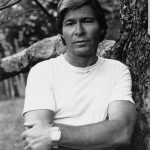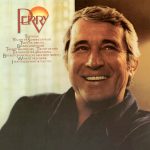I Can Still Make Cheyenne – George Strait


Introduction
Imagine this: It’s late afternoon, and the sun is dipping low, casting long shadows over the dusty plains. The radio crackles to life with the smooth, unmistakable voice of George Strait, singing a story that hits close to home. For many fans, “I Can Still Make Cheyenne” is more than just a song—it’s a reflection of life’s crossroads, where choices are made, and hearts are broken. This song, with its poignant narrative, taps into the universal experience of love, loss, and the longing for freedom.
About The Composition
- Title: I Can Still Make Cheyenne
- Composer: George Strait, Aaron Barker, and Erv Woolsey
- Premiere Date: August 12, 1996
- Album/Opus/Collection: Blue Clear Sky
- Genre: Country
Background
“I Can Still Make Cheyenne” was released as a single from George Strait’s 1996 album, Blue Clear Sky. The song is a classic example of Strait’s storytelling prowess, rooted in the country music tradition. The narrative centers on a rodeo cowboy who prioritizes his career over his relationship, a theme that resonates with many who have faced the tough choices between love and passion. Strait’s collaboration with songwriters Aaron Barker and Erv Woolsey brought forth a tale that is as much about the open road as it is about the human heart. The song was well-received by both critics and fans, earning a place in the repertoire of one of country music’s most enduring stars.
Musical Style
The musical structure of “I Can Still Make Cheyenne” is quintessentially country, with a blend of acoustic guitar, fiddle, and pedal steel guitar that sets the tone for the song’s introspective narrative. The melody is simple yet haunting, allowing Strait’s vocals to take center stage. The song’s arrangement is sparse, emphasizing the loneliness and resignation in the lyrics. Strait’s vocal delivery is restrained, yet deeply emotional, capturing the essence of a man caught between his love for the rodeo and the love he leaves behind.
Lyrics/Libretto
The lyrics of “I Can Still Make Cheyenne” tell a story of a cowboy who, after receiving a call from his partner about ending their relationship, decides to focus on making it to the next rodeo in Cheyenne. The themes of sacrifice, regret, and the relentless pursuit of one’s passion are central to the song’s narrative. The lyrics convey a sense of inevitability—both in the cowboy’s decision to continue with his rodeo life and in the relationship’s end. The refrain, “I can still make Cheyenne,” serves as both a declaration of the cowboy’s determination and a poignant acknowledgment of what he’s leaving behind.
Performance History
Since its release, “I Can Still Make Cheyenne” has become a staple in George Strait’s live performances. The song’s popularity has endured over the years, making it a favorite among fans at concerts. Strait’s understated yet powerful delivery of the song continues to resonate with audiences, who appreciate the authenticity and emotional depth of the performance.
Cultural Impact
“I Can Still Make Cheyenne” has left a lasting mark on country music, encapsulating the genre’s themes of love, loss, and the pursuit of dreams. The song has been covered by various artists and remains a popular choice for those exploring the country music tradition. Its narrative has also found a place in popular culture, often referenced in discussions about the romanticized life of cowboys and the sacrifices they make.
Legacy
The enduring appeal of “I Can Still Make Cheyenne” lies in its timeless story and George Strait’s masterful delivery. The song continues to be relevant today, resonating with new generations of listeners who find themselves at similar crossroads in life. Its legacy is cemented as one of Strait’s most iconic songs, a testament to the power of storytelling in music.
Conclusion
“I Can Still Make Cheyenne” is more than just a song; it’s a poignant reminder of the choices we all face in life and the paths we choose to take. Whether you’re a fan of country music or simply appreciate a well-told story, this song offers a deeply moving experience. I encourage you to listen to it, perhaps during a quiet moment, and let its narrative unfold in your mind. For a truly memorable experience, seek out a live performance by George Strait—it’s a journey worth taking.











